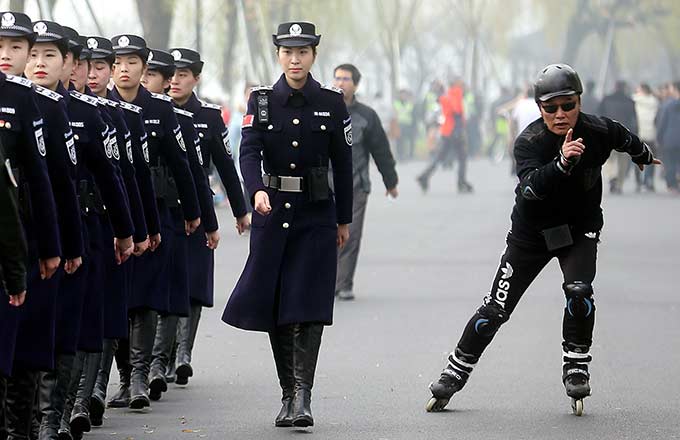Rule change could cut pet quarantine
 |
|
A traveler from the United States watches as a quarantine inspection officer examines her cat at Beijing Capital International Airport late last month.[Ding Shan/China Daily] |
China could be about to scrap its mandatory quarantine period for "low risk" pets entering the country, a top government agency has revealed.
Cats and dogs arriving from overseas have to spend at least seven days at an inspection facility to undergo extensive tests for rabies and other conditions that could cause an epidemic.
However, animals deemed "low risk" could in future be released after passing a simple test at the port of entry, the General Administration of Quality Supervision, Inspection and Quarantine has told China Daily.
It means instead of waiting a week, owners could be reunited with their pets within an hour of arrival.
The authority said the move could be included in revised quarantine regulations and is in line with recommendations from the World Organisation for Animal Health, an intergovernmental organization, on methods for preventing the spread of rabies.
The proposed change comes at a time when China is seeing a growing number of pets arriving from overseas.
According to the administration, about 8,000 pets - only cats and dogs are allowed to be carried into China as pets - were brought in between January and November. Half arrived at airports in Beijing and Shanghai, while the major source countries included the United States, Canada, Italy, Russia, Japan and South Korea.
Under the current regulations, passengers can bring one dog or cat per entry, with each animal required to be quarantined for seven to 30 days. The only exemptions are for certified working dogs, such as guide dogs.
At inspection facilities, veterinarians check the animals for conditions such as rabies, leishmaniasis (an infectious disease caused by parasites that can be fatal), distemper and canine hepatitis.
In August, officers with the Beijing Entry-Exit Inspection and Quarantine Bureau found more than 200 ticks on a bichon frise, a small breed of dog, traveling with a British tourist from Thailand.
Zhang Ao, who works at the quarantine inspection office at Beijing Capital International Airport, said the number of pets arriving at the airport has been increasing for several years.
"During peak seasons, such as summer holidays, we can receive seven or eight dogs or cats a day," he said.
Most of the people bringing in pets are Chinese students returning from studying abroad, foreign diplomats and foreigners who are permanent residents in China, Zhang said.
The airport quarantine inspection officers check all pets on arrival and send them to a nearby holding facility. For those found to have serious conditions, Zhang said the city bureau will usually advise they be returned to the country of origin.
Most passengers comply willingly with the quarantine regulations, but some find it difficult to part with their pets, he said. "Some burst into tears and beg us not to send their pets away. We have to just try our best to persuade them."
He advised passengers traveling to China to look up the country's quarantine laws and regulations before bringing pets.
"We've received different types of animals, such as birds, tortoises and lizards, which are forbidden to be carried into the country," he said. "All of them are sent back."
























